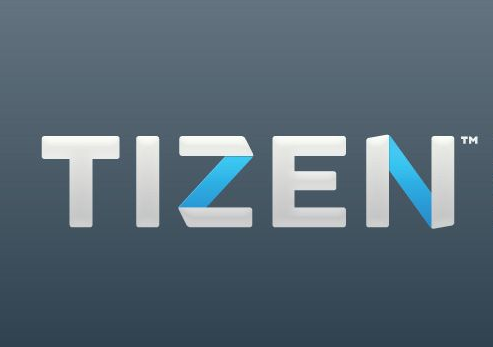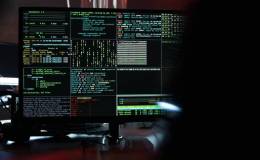Samsung Electronics has emerged as a global corporation commensurate with U.S. technology giant Apple but a weakness in software is still the Korean firm’s Achilles heel.
The world’s largest electronics maker by revenue is now first in market share and annual shipments of smartphones and total handsets, thanks to the popularity of its Galaxy series. Now it hopes to expand to software with its own operating system (OS), Tizen.
The firm will showcase a high-end phone running on the OS to clients at the Mobile World Congress to be held in Barcelona from Feb. 25 to 28, though the event won’t be open to the public.
Samsung is beating Apple on the hardware front, backed by smartphones with high-quality, large-sized screens, which are its most valuable asset, according to mobile chief Shin Jong-kyun. But its software ecosystem is, to put it mildly, meager compared to its California rival.
Apple’s dual strength lies in both its hardware innovation (at least in the beginning) and its iOS for its iPhones, iPads and iPod touches. Hundreds of new apps are constantly added, thanks to zealous developers. Put simply, it controls the whole distribution chain as well as content for its own market.
Samsung, on the other hand, currently relies on Google’s Android. It is an open-sourced OS, but developers need trademark certificates from the American Internet giant. The Play Store is a closed-sourced application owned by Google, with developers for apps paying their dues not to the Korean electronics maker but the American Internet giant.
There is also growing concern that Google may convert Android into a more closed OS like that of Apple to increase revenue.
As Samsung doesn’t have control over the total experience as the iPhone maker does, it is pinning its hopes on Tizen to play catch-up. “It’s hard to admit publically but Samsung is envious of their (Apple) ecosystem,” said an industry official, declining to be named. “Samsung obviously wants to control both the hardware and software for its lineup as that will increase margins.
“The standard for measuring profits in smartphones is not just market share, but traffic in apps. Apple still dominates that front over Samsung, which is but one vendor using Android,” he said.
Tizen is an open source, Linux-based OS like Android. Though it is a collaboration between Samsung and American technology giant Intel, the former owns the rights to the software development kit, or tools to work on the OS, the most valuable certificate of ownership.
Samsung officially announced that it plans to release a Tizen phone within this year. “Samsung has put Tizen development as its priority shoulder-to-shoulder with other key mobile projects for the last few years,” said another industry official familiar with the matter. “It will be open-sourced and available in cross-platforms like Ubuntu.” Details on the OS are scant, except wide speculation that it will be made to run on any device, whether upon release or by a later update similar to that of the Ubuntu OS.
This is not the first time Samsung has pushed a self-developed OS. In 2010, it released Bada but phones using the OS were not popular.
“The key thing about Bada is that Samsung gained a higher level of understanding on planning and developing an OS,” said the official. “So in that sense, it is incorrect to call it a failure. Samsung is incredibly adaptable, shown in the success of its TV and mobile phone business.”
Developers that worked on Bada are currently part of the Tizen team.
Samsung, despite its increased recognition on the world stage, is still bound by where it is based. Korea is not a forerunner in developing globally competitive software, as it has been a long standing manufacturing power. A lack of a local talent pool is also a detractor.
“Korea needs to get going on software development if it wants to stay competitive against the Apple model,” said Jay Elliot, a former senior vice president of Apple. “Companies need to start to adopt combining their hardware to their software, and have a complete product.
“Samsung without having the whole product, hardware and software, plus their own distribution channel, will never be a real contender.”
Source Korea Times
Most Popular Tech Stories
- Kelly Betting – How It Works and the Kelly Criterion Explained
- What are Pokies? – The Latest Guide to How Pokies Work in Australia
- AI industry needs annual revenues of more than the UAE’s GDP to offset costs
- Pepe Unchained Meme Token ICO Hits $2 Million – Could PEPU See a Post-Launch Surge Like PEPE?
- 4 Best Meme Coins to Buy with 100x Gains Potential – Top Picks for July 2024
Latest News
Does AI increase productivity at work? New study suggests otherwise
Artificial intelligence software reduces productivity and harms the working environment, according to a study from the freelance platform, Upwork. The findings appear to question how AI is being deployed at...


















